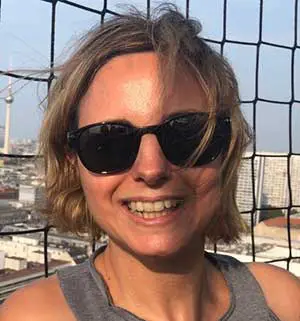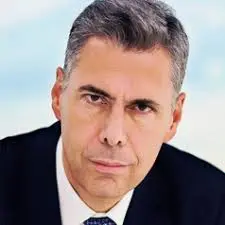“We need a new social contract to ensure that sensitive data always stay in the right hands”

Marta Villalba
Although the insurance industry has traditionally been associated with a conservative mindset, long before terms such as innovation, disruption, or entrepreneurship became part of our day-to-day activities, MAPFRE was already well-known for its ability to transform business models and create high-value proposals for its clients.
MAPFRE aspires to be one of the global leaders in insurance innovation and it achieves this through an open platform, MAPFRE Open Innovation (MOI), which combines the value contributed by external experts with the best in-house talent.
This search for synergies includes, for example, the company’s collaboration with IE Business School in Madrid, an institution to which the subject of this article has been closely linked for many years.
 Enrique Dans is one of the benchmark authorities on technological topics in Spain today. A professor in Innovation and Technology at IE Business School for the last 30 years, he also provides advisory services to companies and contributes to various media outlets. From his unique vantage point as a specialist in innovation, in his book Living in the Future he anticipated a number of long-term changes that the pandemic has since accelerated to the extent that they now seem likely to occur almost immediately. We talked to him about the changes relating to mobility, the environment, health and education.
Enrique Dans is one of the benchmark authorities on technological topics in Spain today. A professor in Innovation and Technology at IE Business School for the last 30 years, he also provides advisory services to companies and contributes to various media outlets. From his unique vantage point as a specialist in innovation, in his book Living in the Future he anticipated a number of long-term changes that the pandemic has since accelerated to the extent that they now seem likely to occur almost immediately. We talked to him about the changes relating to mobility, the environment, health and education.
One of the new opportunities that the pandemic has given rise to is the redesigning of cities to make them healthier. “The health crisis produced by COVID-19 leads us to conceive of a new urban model. We need cities that do not end up by slowly killing their inhabitants, as happens today due to the pollution that causes seven million deaths a year, which is much more than the coronavirus. Since this only happens slowly and in a very dispersed way, we never take it into account, but in reality it is an absolute folly. The crisis has clearly helped us become aware of this situation,” says Enrique Dans.
Cities such as Milan are emerging at the forefront of this new re-designing of the urban landscape. As one of the most polluted places in Europe, the city has just announced the ‘Strade Aperte’ (Open Streets) plan, which provides for an increase in the number of pedestrian zones and of areas where vehicle speed is limited to 30 kilometers per hour, together with 35 new kilometers of bikeways. These measures are intended not only to keep pollution levels low but also to ensure social distancing. Other cities have opted to keep streets closed to traffic during periods of confinement so as to give priority to pedestrians and personal micromobility devices. In this context, Enrique Dans foresees the rise of a new star in the mobility firmament: the electric bicycle. “The potential of the bicycle has expanded enormously, since you can now cover longer distances without arriving at your destination dripping with perspiration and totally exhausted,” he says.
Increased awareness of the need to take care of the planet
Like Luis Suarez, the Conservation Coordinator for WWF SPAIN, Enrique Dans also calls for changes to be made in order to protect nature. “We cannot continue to justify an economy that seems to allow every excess without providing the slightest compensation. For many decades the cheapest way to do things was by polluting the environment. No one charged you for it, and you weren’t even asked to clean up the pollution you had caused afterward. Now we are starting to correct this,” he underlines, referring to the fact that more and more energy companies are choosing to progressively abandon fossil-fuel investments to focus on renewable energy sources.
“The coronavirus has accelerated this mentality because we have realized the seriousness of the situation. This represents a very good opportunity not only to stop relying on oil and to cause less pollution, but also to create a lot of new job positions,” says Enrique Dans, who clearly considers that we ourselves were the cause of the pandemic. “It is not an independent phenomenon, biological systems are all closely interconnected. The coronavirus has been caused by the increasing pressure placed on ecosystems by man, due to the proximity of reservoirs of viruses that should never have existed. Various theories indicate that these viruses may be linked to the raising of animals in unhealthy conditions.”
Real-time health monitoring
“In terms of health issues, we are moving toward an increased emphasis on prevention. If, in China, when the pandemic began, people had been subjected to reasonable monitoring from a health point of view, something simply involving the use of a wearable device or keeping some form of record of basic parameters, we would have realized the importance of the pandemic when it was still a simple, localized epidemic,” argues Enrique Dans.
This trend toward monitoring people so they can share their data in real time is leading to major health research, such as that undertaken by Apple and Stanford University, whose latest study is trying to test the effectiveness of smart watches in tracking infectious diseases such as the coronavirus. Along the same lines, some insurers are monitoring health by using activity bracelets or by connecting devices placed in vehicles to find out about users’ driving habits and, based on these data, to calculate the risk involved and ensure this is reflected in the price of the policy.
For Enrique Dans, the advantages of such mass monitoring are clear. First, it helps medical research “to progress much faster because you get to obtain a lot more data.” Second, it makes it possible to “detect these illnesses much earlier, which brings two advantages.” On the one hand, it “improves patient well-being” because algorithms indicate when parameters become abnormal, which could provide advance warning of a medical problem. On the other, it can generate “lower costs in both public and private health systems, because of course early detection means greater freedom to act. If we had such a system, we would have detected the pandemic when it was not yet in existence.”
The other side of the coin in this health monitoring pattern is data privacy, a risk that is currently at stake in COVID-19 monitoring applications. In order to ensure that the collection of such information is not going to be a problem, “we need a kind of new social contract that allows us to establish that specially protected data, such as those relating to health, will always stay in the right hands,” he says.
Online education: fluid teaching with no need for textbooks
The pandemic has highlighted the digital deficiencies of many centers of education and has shown the wide discrepancies in the adoption of online education. “For many years online teaching was looked on as a poor substitute for when you could not go to classes in person. This is not the case. In many ways it can be more comprehensive and generate better learning than face-to-face classroom attendance,” says Enrique Dans. From his viewpoint as an educational expert, although we have been putting technology in the classroom for years, we have advanced very little from the way our parents and grandparents used to learn.
“We were in a space-time paradox. Thanks to the move to digital, new forms of education will be fluid, meaning that at any time you can switch from classroom to online teaching while maintaining quality,” says Enrique Dans. That quality means dispensing with textbooks (“they should be banned because their use allows education to be edited and manipulated,” he complains) so as not to separate students from the sources of their information, and thus enable them to acquire a critical sense. Dans proposes: “If you educate a person on the basis that the only thing that has to be learned is a single source called a textbook, students will think that the truth is to be found only in one place. You don’t accustom students to the idea of checking, contrasting and comparing with other sources.”
